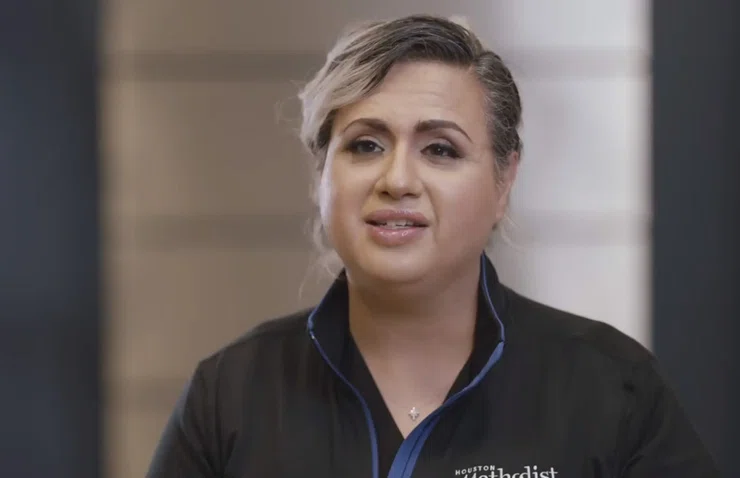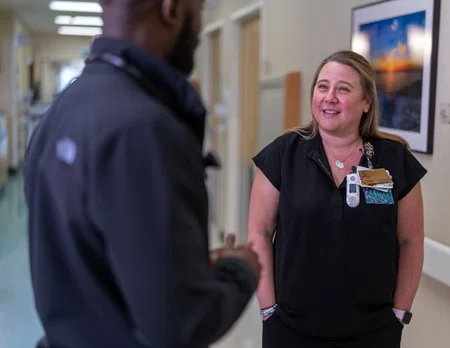

In this
issue

WELCOME
NURSING SCIENCE

Leveraging digital technology in nursing

Cooperation Not Competition:
Why Nurse-Technology Partnerships Are Necessary for the Future of Patient Care

Houston Methodist Special Edition of the Journal of Nursing Education and Practice
EDUCATION

Houston Methodist Willowbrook: Transforming Nursing Education Through Innovative Methods

WatchNursing Houston Methodist

Upcoming Courses
PRACTICE
PROFESSIONAL DEVELOPMENT
FROM OUR TEAMS

The Role of the Patient Care Assistant in Transforming Nursing at the Bedside

Utilizing Technology to Transform Your Workflow

ABOUT DISCOVERN
FROM OUR TEAMS
The Role of the Patient Care Assistant in Transforming Nursing at the Bedside
By Latoya Clower, MSN, RN, CVRN-BC
By Latoya Clower, MSN, RN, CVRN-BC

Transformational leadership is a management style that inspires and motivates others to maintain accountability for their roles while encouraging individuals to perform beyond minimum expectations. As leaders display the example through enhanced visibility and modeling behaviors, employees can also reflect this leadership (Mennella, H. et al., 2018). As a magnet organization, transformational nursing is one of the critical components of nursing practice, and many Patient Care Assistants (PCAs) are currently modeling this on nursing units throughout the organization.

Marjorie Bernard, who has worked on Main 8 as a PCA Specialist for six years, is a great example. Throughout her journey at Houston Methodist, and after working closely with leadership, Marjorie has initiated 20 educational programs at the unit-based level. One of the most effective programs is “Grounding Day,” a new-hire training and onboarding program. The program includes a welcome binder, learning activities to promote staff engagement, clinical shadowing expectations, and a general unit orientation guide related to safety measures and available clinical resources. The program fosters connections between new hires and current staff members, provides an exceptional orientation process, and integrates hospital culture. Overall, the program has been very successful. New hires have provided encouraging feedback, including the welcoming nature of the program and unit, increased confidence levels, boosted morale, and enhanced comfort levels within their new position. Throughout the years, the program has improved staff retention rates and stimulated active professional development within the unit. Most importantly, patients report increased comfort levels and develop a heightened trust with staff members based on competent patient care experiences.

Alexia Martinez is another PCA Specialist who has worked on Dunn 8 West for the past two years. One of the unit-based educational programs she is most excited about is the Central Line-Associated Blood Stream Infection (CLABSI) and Catheter-Associated Urinary Tract Infection (CAUTI) bundles and audit process. Having previously worked with spinal cord injury patients for 12 years, Alexia knows how infections can impact patient conditions, especially when coupled with multiple comorbidities. The bundle and audit process remains influential within Alexia’s unit and continues to lead practice guidelines for patients with central lines and indwelling urinary catheters. It also serves as the driving force for the reduction of infection rates. Ultimately, as staff compliance and practice guidelines are maintained, patient risks are identified, and patient outcomes are enhanced.
Marjorie and Alexia show us the fantastic ways PCAs can create transformational nursing at the bedside. How have you made transformational changes in your units? We would love to hear about the incredible work that’s being done!
Reference:
Related Articles

FROM OUR TEAMS
Utilizing Technology to Transform Your Workflow

PRACTICE
Transforming Patient Satisfaction Scores with Nurse-Physician Bedside Rounding
Contact us at CNREPHelp@houstonmethodist.org
Questions or comments?
© 2023. Houston Methodist, Houston, TX. All rights reserved.









